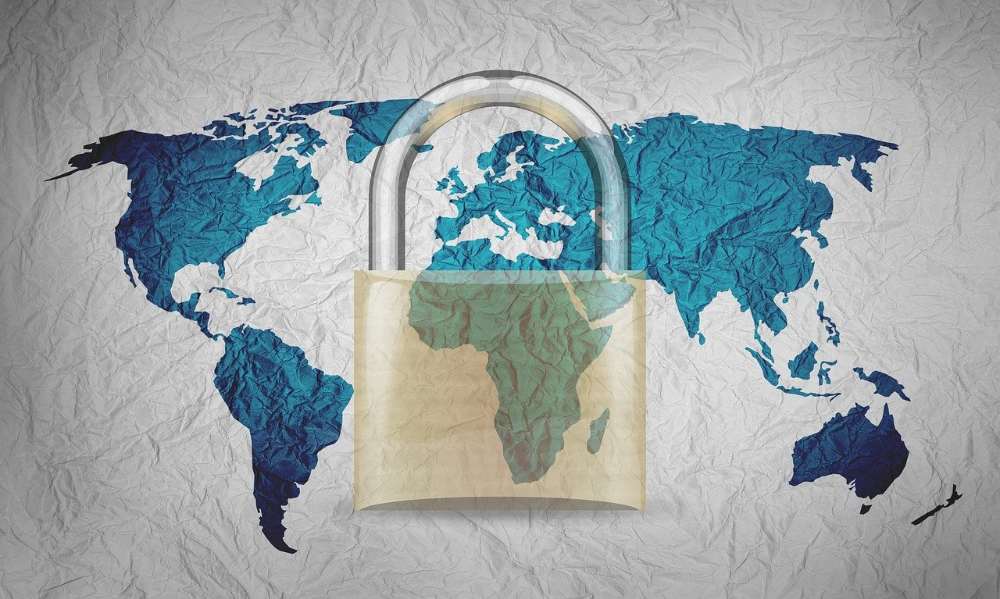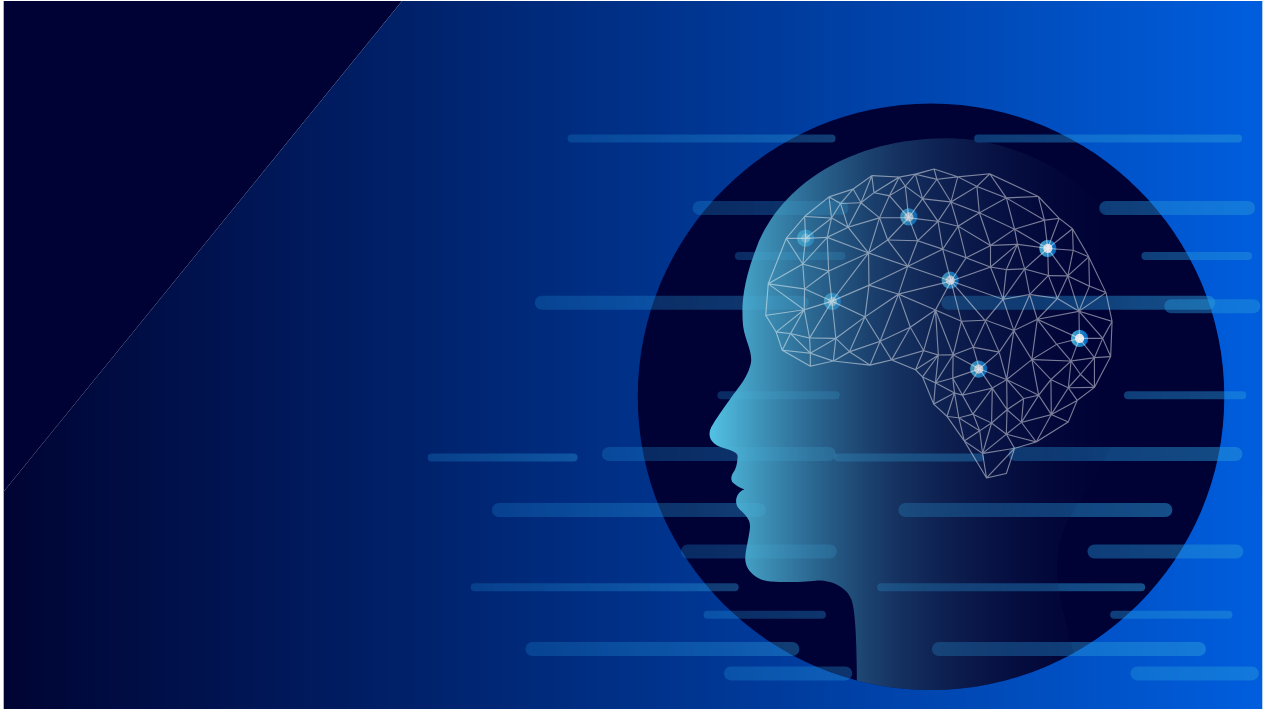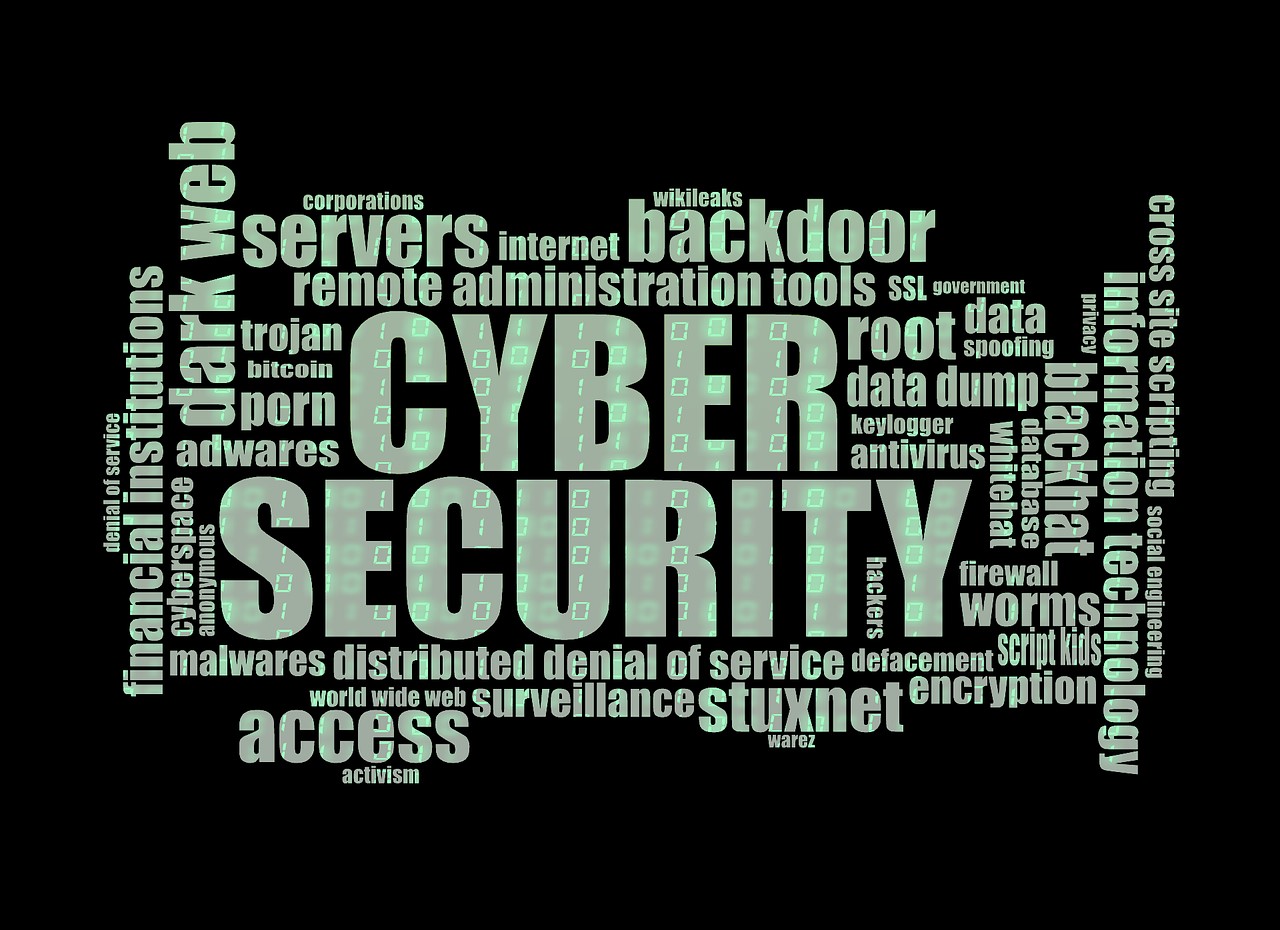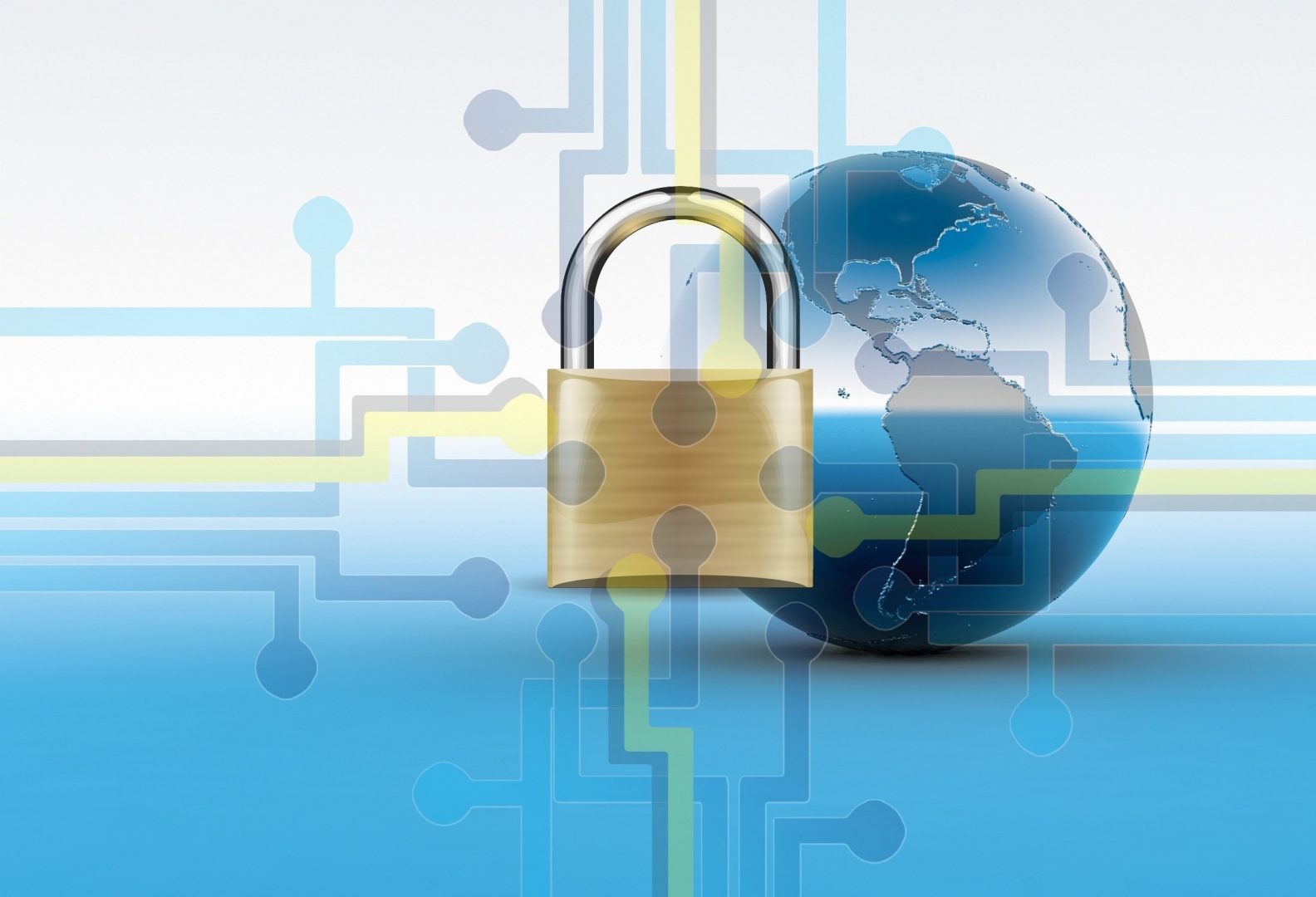There is one thing to keep in mind when looking forward to the future of cyber security: it is extremely possible that everything could change in an instant.
Our previous articles have explored how future of cyber security has changed in 2020 , the top threats in 2021 , and security trends small businesses should watch for in 2022 , and now it’s time to take a look at what lies ahead for the next few years. In this blog, Field Effect’s analysts share their thoughts about the future of cyber security and what they think will shape the future of cyber security issues.
Ever wonder what the future of cyber security in 2031 will look like? While 10 years may seem a long way into the future of cyber security, the speed at which the future of industry is evolving is sure to make the next decade fly by. Predicting the future of cyber security isn’t about looking into the crystal ball merely for fun. By envisioning how the industry will change in 10 years, chief information officers and chief security officers can prepare for future of cyber security and the challenges, so they don’t look back and wish they had acted in 2021.
As much as I enjoy making predictions, to give this story the best chance at getting things right, I interviewed three top cyber security experts for their perspectives on the future of cyber security.
Tyler Cohen Wood is an author, speaker and former senior intelligence officer with the Defense Intelligence Agency.
Roger Grimes is the defense evangelist for KnowBe4 and author of several books about hacking.
Troy Hunt is a cyber security speaker and trainer. Founder of the popular ‘Have I Been Pwned’ website, he has also testified before Congress about data breaches.
We talked about the future of cyber security and the cloud, passwords, artificial intelligence (AI), data breaches and the skills gap. Take a look at their expert insight on what the industry needs to know about the future of cyber security in 2031.
Cloud computing: The future of cyber security
Certainly, one area of IT has seen the most growth in the past ten years, and cloud computing is without a doubt one of those aspects. I can see cloud computing set to continue to make a profound impact in the years to come. Is that actually possible? Maybe it is, but only if you ask the right person.
According to Hunt, the cloud allows companies and organizations to put services online more rapidly, more cheaply and more easily than ever before as well as collect huge quantities of data.
Nevertheless, it’s easier to leave it all exposed since it’s faster, easier, and cheaper than ever. “The number of occasions where they go wrong has been increasing recently. In my opinion, none of those factors is going to decrease in the upcoming decade. This is largely due to the fact that there is, in fact, such a high demand for them right now. “We think it’s only natural to want cheap, ubiquitous cloud services; we also think it’s only natural to want to connect our washing machines to the Internet, and that’s not going to change.”
According to Cohen Wood, cloud computing may not survive the middle of the century. The cloud might disappear at the end of the decade.
According to her, there are probably going to be more on-premise systems in 10 years rather than cloud systems. It is expected that there will be more peer-to-peer networks that are closed. I believe that people will come up with new ways to utilize blockchains in the future of cyber security.”
According to her, a peer-to-peer system would be ideal. It is composed of thousands of networks, each carrying different types of traffic for different types of communications. The same principle does apply to the intelligence community in general.
Nevertheless, you will have an unsafe network, a secured network, and then you will have a very secure network,” she explained.
The person who told me this, Cohen Wood though, believes that the cloud will never be a thing of the past. The trend will swing to on-premise for a while, but eventually, it will catch back to cloud since that will be what works best in the long run. It’s not something new. It’s never been in dispute.”
Passwords: The State of the Art
I remember the password now. My friends and I have been talking about the possibility of destroying it for decades now. The list of the ten richest people in the world is growing at an unprecedented rate today.
It is grimes’ belief that in 10 years, the same attacks used to steal our passwords will still be available to threat actors. This means that our beloved and well-known passwords will still be alive and well for a while to come.
As a result, there are 10 main causes of hacking and malware exploitation, such as social engineering, unpatched software, misconfiguration and eavesdropping, according to Mr. Wright. “I was a member of the industry when I started 34 years ago, and the methods used back then are the same methods used today,” he said. The government hasn’t even invented new methods of hacking computers. Therefore, I completely believe that passwords will be around for at least another decade, or maybe even two decades, or maybe even forever. Therefore, I am going against what I would consider to be “conventional wisdom.
How accurate were the predictions of the past?
It was thirty years ago that Malcolm Grimes wrote his first article about the demise of the password. He still ponders this theory with a restrained optimism, but he acknowledges that passwords are particularly useful. There is no doubt that the future of cyber security in this first article has become a reality in the past few years.
“We actually have more passwords than we ever have before, so we do not have fewer passwords,” he told me. The reason why we have passwords lies in some of the advantages they have over our predecessors. The best thing about these tools is how cheap, easy to use, and easy to change they are. “It won’t surprise me at all if they are still in use in two decades time. We should have used them in the early 1900’s.”
According to Hunt, passwords seem to be here to stay, but in his view, they might even evolve. The minister said: “I think we will have more passwords in the next ten years than we do now, but I also think that there will be more methods of authenticating without using passwords.”. One good example of how the industry is shifting is an example of how when I use my iPhone, I can login directly with my face; I do not need to use a password.”. Even so, I will still make use of a password, as well as a PIN, as a fallback position. My favorite is where we are going with this new method of authentication that’s becoming more clever.”
In Hunt’s opinion, over the next ten years, we will see both the use of biometrics and the utilization of additional authentication methods that rely on devices we already carry with us every day.
According to him, passwords sometimes seem to get a bad rap. However, they are extremely usable, and that is one of the things that passwords are fantastic at. There is no need for anyone to be confused regarding passwords.
Toward the Future of Cyber security – The Role of Artificial Intelligence
It might be hard for us to predict how prominent a password and cloud will be in 2031, but one thing we can count on is the important role that artificial intelligence will play in cyber defense. This is also a look into the future of cyber security.
It was told to me by all three experts that the use of the AI will be even more critical than we originally anticipated.
Cohen Wood, who has been developing her own AI algorithm for the health care industry, firmly believed that if artificial intelligence isn’t adopted as soon as possible, the world may be in trouble. Furthermore, “I also believe there’s a possibility that in certain industries, such as health care, not using AI in your practice to some extent will be either a criminal offense or malpractice at some point in the future of cyber security.”
In Grimes’ view, artificial intelligence will be necessary to determine if the industry can remain competitive with the threat actor community. According to him, you will be faced with both good threat hunters and bad bots that change based on the environments they are in. “If everyone sits around and creates better algorithms for each of their bots, I believe we will have computer security algorithms.”. There is eventually going to be a bot versus bot fighter. Regardless, you still need to put people into the equation because human beings are always needed and account for at least half of the solution. Thus artificial intelligence can also been seen as one of the most important tools in the future of cyber security.
Data Breach Trends and the Threat Landscape
According to predictions, data breaches will become more prevalent in 2031 than they are in 2021 – an unfortunate and frightening development. Increasingly, more data and devices are being accessible online, increasing the risk of a breach.
As the future of cyber security approaches, Hunt has been saying that a number of aligning factors will continue to worsen data breaches. Our data collection methods have improved because we have more online assets and digital systems, he said. “We’re also getting more and more people online; for example, take a look at these emerging markets like India. The amount of growth there is going to continue to happen is staggering, as more and more people are going to come online to access the internet and have their data downloaded to digital devices.” It is important to focus more on the data breaches in the future of cyber security.
Just think about the number of people in the world. As more and more devices become connected to the Internet of Things, hackers will have more data to breach as a result. According to Hunt, a large amount of information is being collected about devices that were never digitalized before they were collected. Hunt says it is important to digitize all this information.
Breach of large-scale or supply chain networks
During my recent tour of our facilities, I asked several experts who specialize in cyber threats if we should be concerned about infrastructure attacks and other large-scale breaches.
Grimes believes that there will be more attacks against supply chains and even more attacks against nation-states as the year progresses. In effect, all the horror stories that we have been worried about seem to have come true,” Mr. Li said in the interview. Rather than using their natural resources even to need resources, nation states are increasingly searching for those for digital infrastructure.
It is become increasingly important to bring more systems online and make them more accessible as people bring more systems online and make them accessible to a greater number of people as people bring more systems online.
According to him, the only way to prevent more infrastructure attacks is for nations to adopt an international treaty similar to the Geneva Convention that forbids them to attack infrastructure.
The Skills Gap: Future of Cyber security

Finally, we should talk about the overwhelming number of future of cyber security positions that remain unfilled. In any case, if we fail to solve this crucial piece of the future of cyber security puzzle, then how can we remain competitive?
The field of cyber security is well known for its lucrative salaries, so you’d expect that this would help to reduce the cyber security skills gap.
“I cannot say I’m delighted,” Grimes replied, his voice breaking at the end of the sentence. “Money has been good for a while.” he continued. The chances of you making six figures in a few years are fairly high, and some people are able to make six figures right out of school. So you can do whatever you want. It is possible to make your own threat hunting software, as well as your own threat hunting bot. This is extremely frustrating that we are still experiencing this issue in 2021.
Future of Cyber security – Women in the field
More than anything else, Grimes is frustrated about how to get more women interested in the science field.
According to him, it may come as a shock to many people today that the percentage of women in the IT security field is lower than what it was twenty years prior. “I applaud anyone who is able to figure out how to fix this, since it is an issue that needs to be addressed by women. Most long-range planners often say that women play chess, and every guy I know plays at best checkers.
There are many things more important to a career than money, of course. There is no doubt that the job security in this industry is as solid as it is in other industries. It is important not to neglect the growth in the future of cyber security as it is the new recruits who are guiding it.
According to Hunt, there is a great deal of demand for this product. In fact, according to Splendid, “we seem to leave a lot to be desired in terms of how well we actually handle our assets in terms of security. ” “I think it’s a good time to be involved in this industry now more than ever.” In order to have a better future of cyber security it is important to focus on the right way to promote women to join this industry.
As Wood said, “I prefer to think positively, or I wouldn’t do what I am doing.”. “I have to believe that it is possible to overcome this challenge. I’m aware, however, that the only way that we are going to be able to accomplish what we need is to work together.”
There is a big for the future of cyber security and we need to act on it now. There is a lot of uncertainty about the future of cyber security but it is most likely there will be a lot of changes in the future of cyber security that are also discussed above.




![Technology Week Blog Us [June 2022] Let's Know The Details 3 Technology Week Blog Us [June 2022] Let's Know The Details](https://pingquill.com/wp-content/uploads/2022/06/Technology-Week-Blog-Us.jpg)




